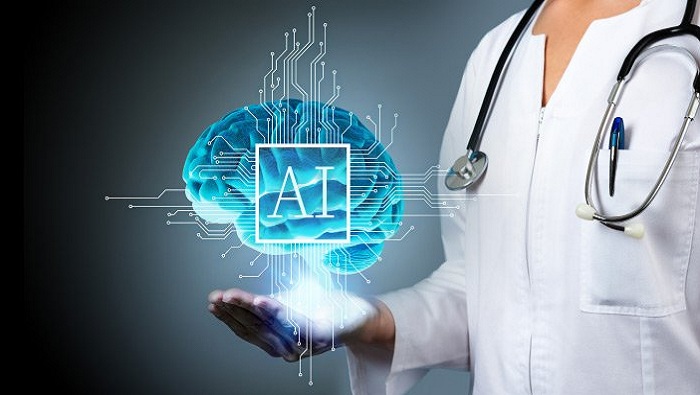Artificial intelligence (AI) can be used in a variety of ways in healthcare, from risk assessment and diagnosis to the selection of treatment approaches, to improve outcomes for patients.
Artificial intelligence (AI) has the potential to revolutionize the healthcare industry as the amount of data collected grows. ML algorithms and artificial intelligence tools can provide proactive, clever, and often concealed insights that help doctors make better diagnoses and treatments.
If AI is used in the following areas: enhancing care, chronic disease management, risk identification, and workflow optimization, it can have a significant impact on both patients and healthcare providers alike. Let’s look at the top five advantages of adopting AI in healthcare to help providers better grasp how to take advantage of it inside their ecosystem.
Population Health Management
Data from healthcare organizations can be analyzed with AI to identify and prevent risks, fill in gaps in preventative care, and better understand the interplay between the individual’s clinical, genetic, behavioral, and environmental elements in the population. It is possible to get a comprehensive picture of a patient’s health by using diagnostic information, examination results, and unstructured narrative data. This data can be used to identify illness risk factors at an early stage through the use of artificial intelligence (AI)-driven applications.
As these data sets are accumulated, predictive analytics can be gleaned to provide a picture of the population. As a result of these findings, risk stratification can be applied to populations based on genetic and phenotypic characteristics, as well as behavioral drivers and social factors. With this knowledge, healthcare companies can provide more tailored, data-driven treatment while also optimizing resource allocation and use, resulting in better patient outcomes.
Decision-making
To identify and treat patients more quickly, artificial intelligence can be used in some healthcare operations. Medical professionals can respond more quickly and save more lives as a result of this. The speed and accuracy with which ML systems can identify risk compared to traditional operations are astounding. Inefficient manual operations can be automated by these algorithms, speeding up diagnosis and lowering diagnostic errors, which are still the most common cause of malpractice claims in medicine.
More than that, AI-enabled technologies can assemble and sift through massive volumes of clinical data to present doctors with a more complete picture of the health condition of patient groups. In order to improve patient outcomes, these technologies allow the care team access to real-time or near-real-time actionable information. It is possible for the entire healthcare team to operate at the highest level of efficiency by automating data collection and analysis.
A Surgical Procedure aided by Artificial Intelligence
Surgical robotics is one of the most cutting-edge AI uses in healthcare. AI surgical devices that can perform the slightest movements with flawless precision have emerged as a result of the maturation of AI robotics. As a result, the average wait time for procedures, as well as the danger, blood loss, complications, and possible adverse effects of these procedures, can be reduced by using these devices.
Additionally, machine learning can play a role in facilitating surgical procedures. A patient’s current status can be monitored in real-time, giving surgeons and other medical experts valuable information and insight. They can use this AI-backed knowledge to make timely and educated decisions to ensure the best possible results before, during, and after surgeries.
Access to healthcare is becoming easier for more people
Limited or nonexistent health care access has been linked to considerable differences in average life expectancy between wealthy and impoverished countries, according to studies. Delaying the introduction and use of cutting-edge medical technologies that can improve health outcomes for the public is a major problem in developing countries. Care delivery is further hampered by a scarcity of medical experts and well-equipped hospitals in these areas. AI-enabled digital infrastructure can speed up the diagnosis of symptoms and improve the efficiency of the healthcare system.
As a corollary, AI in healthcare can assist alleviate the shortage of healthcare personnel in low-resource locations by taking over some diagnostic responsibilities. As an example, using ML to analyze diagnostic studies like X-rays, CT scans, and MRI images enables faster diagnosis. To further enhance training for students, residents, and fellows, educational institutions are increasingly using these tools to reduce diagnostic mistakes and patient risk.
Maximize productivity and cut costs
In today’s healthcare industry, there are many interdependent systems and processes. As a result, it is extremely challenging to balance cost-effectiveness with patient wait times and asset usage.
AI is rapidly being used by health systems to filter through large volumes of data in their digital ecosystems to gain insights that might assist improve operations, increasing efficiency, and optimizing performance. A few examples include how AI and machine learning can help with revenue cycle performance by automating routine, repeatable tasks like prior authorization claims and denials, as well as how they can help with throughput and effective and efficient use of facilities by prioritizing services based on the acuity of the patient and the availability of resources.
Artificial Intelligence and machine learning (AI and ML) can help administrators and clinical executives make better decisions about the hundreds of decisions they must make every day, allowing patients to smoothly migrate between various clinical services.
Final Note
Neither inside nor outside the hospital walls, the exponential growth of patient data continues unabated. Organizations providing healthcare are under increasing pressure to find technology solutions that can help them improve operational and clinical performance while also addressing a global shortage of health workers and rising healthcare costs as a result of persistent financial difficulties and operational inefficiencies.
In healthcare, AI has the ability to improve quality and efficiency by analyzing and extracting intelligent insights from massive amounts of data.


















